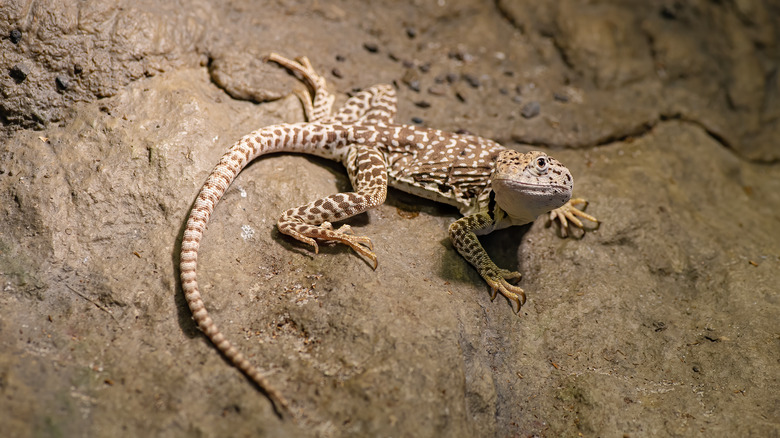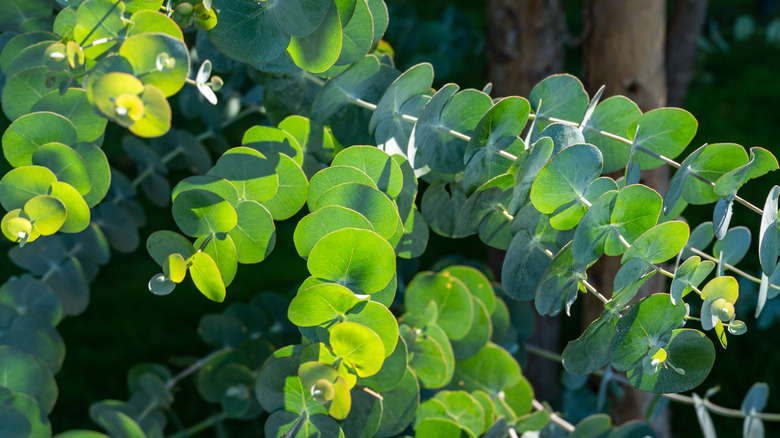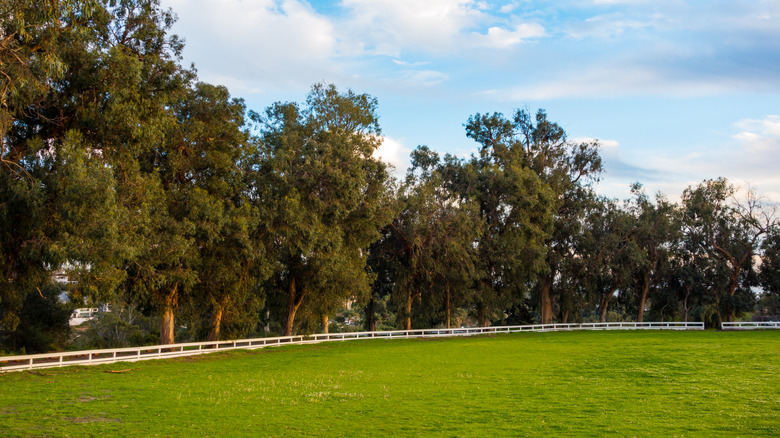Can This Fresh Smelling Tree Keep Lizards Away From Your Yard Naturally?
There are thousands of species of lizards in the world, many of which make their home in the United States. Although these creepy reptiles help the ecosystem by eating bugs and other garden pests, you may not want them slinking around your backyard, especially if they have infested your garden. Harsh chemical pest repellents could harm your other plants, so if you've been looking for humane ways to keep lizards at bay, you might want to consider planting a eucalyptus tree (Eucalyptus sp.).
Part of the myrtle family, eucalyptus trees are native to Australia but can be found all over the world. Although there's no actual scientific evidence that they repel lizards, these often-tall and fast-growing evergreens have oil glands in their leaves that release a strong smell. This scent is believed to be unappetizing to lizards and other pests. Eucalyptus oil is comprised of varying levels of eucalyptol (also known as cineol), limonene, and citronellal, depending on the species. This chemical cocktail has also been shown to be a natural pesticide, particularly against mosquitoes, per a 2008 article published by Forest Ecology and Management. Lizards eat mosquitoes, so perhaps that's where the idea of eucalyptus as a lizard repellent originated.
What to know about eucalyptus trees
While the jury is still out on eucalyptus' effectiveness as a lizard repellent, these trees can be useful for repelling mosquitos and other pests, so you many want to plant one in your yard. Some eucalyptus species can grow to be 60 feet tall in their natural habitat, but in your garden, regular pruning can keep them at a manageable 6 to 10 feet. Eucalyptus trees prefer hot, dry climates and can be grown in USDA hardiness zones 7 through 10. They do best in full sun and can tolerate various types of soil with a pH between 5.5 and 6.5 as long as they also have good drainage.
Certain types of eucalyptus can be grown indoors to potentially keep lizards out of your home as well, but it's important to make sure they get enough sun. You should also be sure to use a planter big enough to contain your eucalyptus' roots, keeping in mind that you may have to replant as the tree grows. Eucalyptus trees do not like having their roots messed with, so make sure not to disturb the root balls when moving or transplanting. If you decide to plant one of these trees, check out our tips on how to successfully grow a eucalyptus plant.
Other things to consider before adding eucalyptus to your yard
However, there are some things to consider before adding a eucalyptus tree to your garden. Because eucalyptus trees are non-native, government and environmental groups have raised concerns about their potential for aggressive growth. The California Invasive Plant Council (CAL-IPC) has put certain types of eucalyptus trees, particularly the blue gum, on their "do not plant" list, warning that these trees can edge out surrounding native plants. Additionally, because their roots spread out, eucalyptus trees can consume large volumes of water, diverting the H20 and nutrients from nearby plants.
Another concern is the eucalyptus tree's purported role in fanning wildfires. They shed large amounts of bark and other litter that are easily consumed by fire. Additionally, the oil in their leaves — the same oil that keeps pests away — is highly flammable. In a wildfire, this oil can mix with air to form fireballs that could ignite nearby trees or bushes. Finally, eucalyptus plants are toxic to humans and animals if consumed, so keep pets and children away from these trees.


